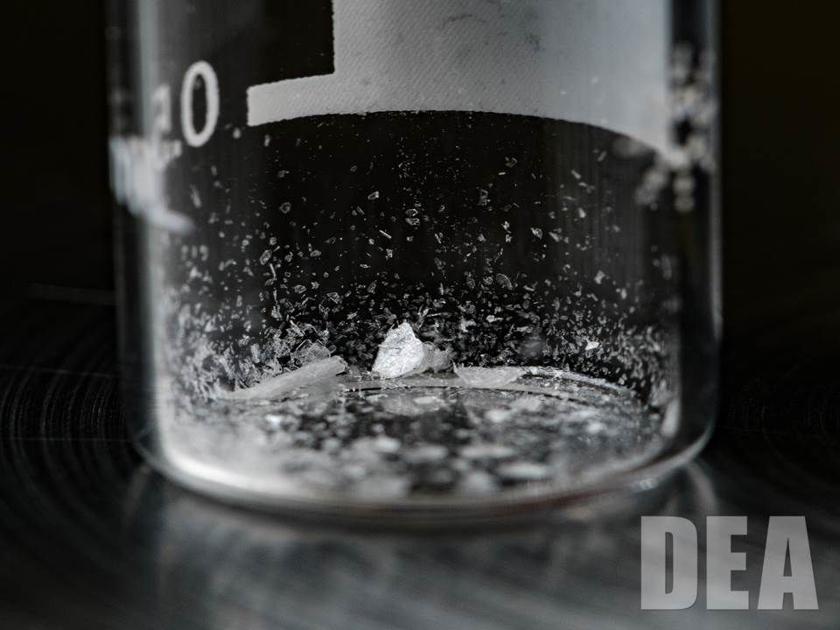
02 Jul Six sentenced in fentanyl distribution case that caused ‘massive number’ of overdoses in Murfreesboro | News
Six individuals were sentenced this week for their alleged roles in a fentanyl distribution conspiracy which caused a massive number of overdoses and resulted in at least one death, announced U.S. Attorney Don Cochran for the Middle District of Tennessee. The July 2016 episode also left more than 20 persons hospitalized in the Murfreesboro area.
Joedon Bradley, 31, of Nashville, was sentenced Monday to 30 years in prison and Jonathan Barrett, 31, of Murfreesboro, was sentenced to 23 years in prison. Johnny Williams, 33, also of Murfreesboro was sentenced in December 2018 to 20 years in prison. A federal jury convicted the trio in March 2018, after an eight-day trial.
Also sentenced Monday were Eric Falkowski, 37, of Kissimmee, Florida, 266 months in prison; and Davi Valles Jr., 26 of Nashville, seven years in prison. Falkowski and Valles pleaded guilty in 2017.
Sentenced Tuesday was LaKrista Knowles, 27, of Nashville, who pleaded guilty in May 2017, 100 months in prison.
The remaining defendants, Preston Davis, 25, of Madison, and Jennifer Dogonski, 35, of Farmington, Michigan, formerly of Murfreesboro, previously pleaded guilty and will be sentenced in September.
During the course of sentencings, U.S. District Judge Jack Zouhary, sitting by special designation, said that this was “one of the saddest cases” he had seen in his time on the bench and “it was as if [the defendants were] putting a gun to someone’s head,” according to Cochran.
This investigation began in July 2016 when law enforcement and medical personnel in the Murfreesboro area were overwhelmed by a series of overdoses caused by pills that appeared to be prescription Percocet pills. The pills were counterfeit and contained fentanyl, alprazolam and acetaminophen, and had been produced by Joedon Bradley and Eric Falkowksi.
According to testimony at trial, in May 2016, Falkowski moved his illicit pill operation to Madison after law enforcement conducted a search of his home in Florida and seized his pill presses. Following the seizure, Falkowski obtained more fentanyl through the internet from China and purchased a new pill press through Amazon, Cochran said.
Beginning on July 4, 2016, Bradley and Falkowski mixed together a combination of inert pill binder, alprazolam (“Xanax”), acetaminophen (sold as Tylenol) and fentanyl, Cochran said. Over the course of approximately 24 hours, Bradley helped produce thousands of pills, using a pill mold that imprinted “A333” onto the finished product: a white, oblong pill that was almost identical to a prescription A333 Percocet pill.
On July 5, 2016, Williams obtained approximately 300 pills through the chain of distribution, Cochran said. Williams arranged to sell 150 of those pills for $1,050 to Jonathan Barrett through Jennifer Dogonski, a woman who acted as a broker.
During the period of July 5-6, 2016, Barrett, Williams and Bradley all distributed counterfeit Percocet pills containing fentanyl, with the markings “A333,” that were produced by Falkowski and Bradley, Cochran said. On July 6, 2016, Barrett learned that some individuals who had purchased the counterfeit pills had overdosed, and that one had possibly died, but he continued to distribute the counterfeit pills.
Law enforcement later searched a home in Madison pursuant to a federal search warrant, and found, among other things, the pill press, multiple molds used for embedding text onto pills, including a mold for “A333,” a pill grinder, fentanyl, alprazolam and other drug manufacturing equipment, Cochran said. Testing later confirmed that the mold found at the house was the same mold used to make some of the pills seized from overdose victims during the investigation.
This case was investigated by the Drug Enforcement Administration; the Tennessee Bureau of Investigation; the Murfreesboro Police Department; the Rutherford County Sherriff’s Office; and the Food and Drug Administration. The case was prosecuted by Assistant U.S. Attorneys Amanda J. Klopf and Brent A. Hannafan.
[ad_2]
Source link



No Comments